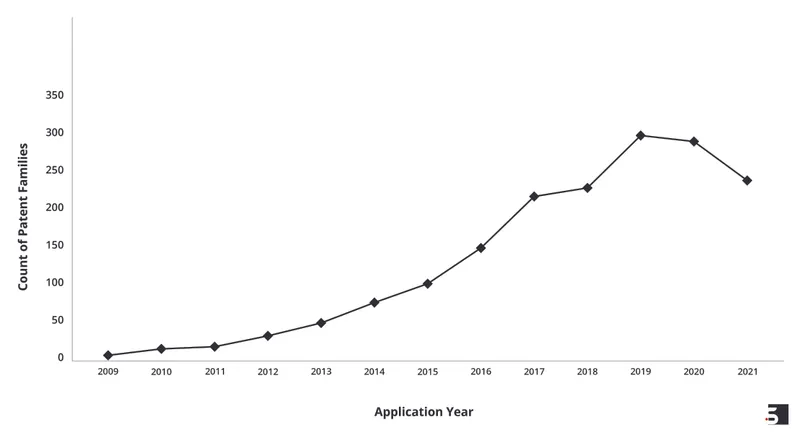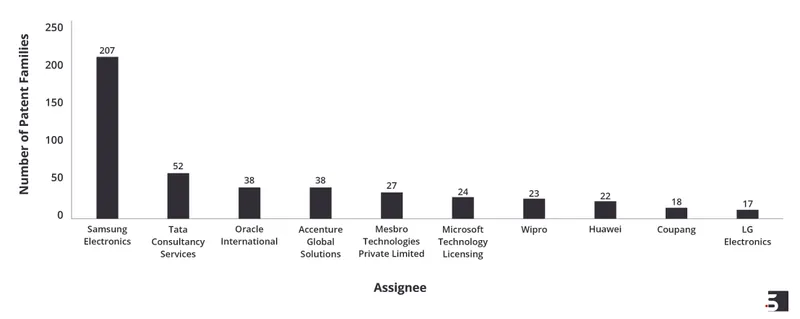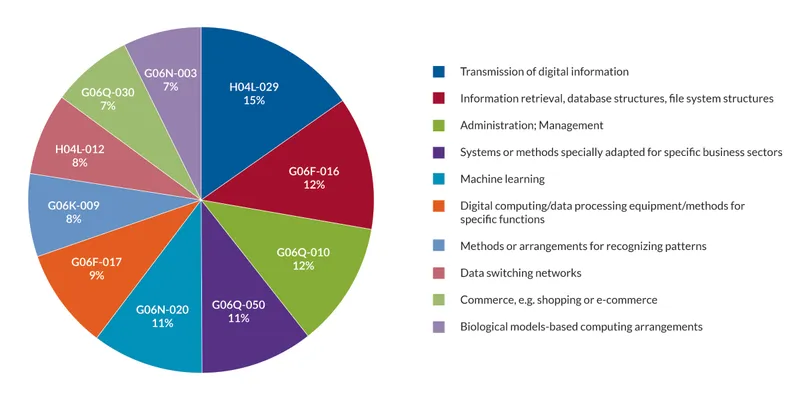Why India is the new hub for Big Data analytics patents
While Big Data is revolutionising businesses over the world, India, in particular, has witnessed a sharp uptick in innovation in this space.
In today’s digital age, huge volumes of data get created every minute. The valuable insights derived from data have the potential to help businesses identify new opportunities, boost profits, streamline operations, and enhance customer satisfaction.
Thus, there is a need to develop technologies capable of recording, storing, and analysing vast data to provide actionable insights.
That’s where Big Data Analytics plays a key role. While it is revolutionising businesses over the world, India, in particular, has witnessed a sharp uptick in innovation in this space. Companies are developing newer ways to integrate big data analytics into their business units.
Protecting such innovations through patents is also on the rise to have an edge over the competition. All this can be affirmed by recent patent trends that offer fascinating insights into the growing interest of companies in big data analytics.
Patent Trends in Big Data Analytics

Count of Patent Families in Big Data Analytics from 2009 to 2021
Patent filing numbers in big data analytics indicate the increasing interest of companies in India. While innovation in big data analytics began as early as the year 2009, patent filings only picked pace in the mid-2010s, with the patent family count rising from around 100 in 2015 to 300 in 2019.
The COVID-19 pandemic, worldwide lockdowns, and the limitation imposed by Section 3(k) of the Indian Patents Act (which prohibits patenting algorithms and computer programs), have impacted patent-filing in Big Data analytics.
The provisions of Section 3 of the Indian Patents Act, if revised, will encourage patenting in Big Data technologies.
Top Patent Assignees in India in Big Data Analytics

Number of Patent Families of Top 10 Assignees in Indian Jurisdiction in Big Data Analytics
- Samsung has a stronghold in the Indian market with a massive big data analytics portfolio. Its largest R&D centre outside of South Korea is in Bengaluru. This indicates Samsung’s Indian market expansion, which will likely challenge new market entrants in Big Data Analytics domain. Its patent filings in the last five years testify to this fact–Samsung has filed more than twice the number of patents in India than any other company.
- Tata Consultancy Services (TCS) has built a cognitive computing platform comprising tools that reduce business process lifecycles through AI-driven insights. It is also building proprietary AI (artificial intelligence) solutions for business transformations across different industry verticals with products like Algo Retail, Intelligent Urban Exchange, TCS ADD, Decision Fabric, TwinX, and Ignio.
- Oracle recently announced Oracle Cloud Infrastructure (OCI) AI services to boost innovation and aid smarter decisions. It has also acquired Cerner in a bid to combine Oracle’s automation and analytics expertise with Cerner’s clinical prowess to transform the health and wellness industry.
- Wipro has been strategically building their Intellectual Property portfolio in India by harnessing technology and research potential to boost innovation in Deep Learning, Big Data, IoT (Internet of Things), and Real-Time Analytics.
Indian startups in the tech domain are also filing patents as it enhances their chances with investors, acquisitions by larger companies, and protecting inventions.
For instance, Niramai Health Analytix, a Bengaluru-based deep-tech startup, has four patents for AI-based analysis of thermal images to detect early-stage breast cancer in women.
The various educational institutes in India, such as IITs (Indian Institute of Technologies), CSIR (Council of Scientific and Industrial Research), DRDO (Defence Research and Development Organisation) and ISRO (Indian Space Research Organisation), have been in the patent filing race for a long time.
Indian Government has launched the Startup India scheme offering an 80 percent rebate on patent fees to startups, amongst other benefits. Companies in the AI and Big Data ecosystem can benefit from this scheme in building a competitive moat around their technologies cost-effectively.
Top Patent Families in Big Data Analytics
The recent advancements in machine learning and deep learning technology, along with the boom in Big Data, have facilitated corporations to seamlessly integrate real-time analytics and prediction into their portfolio. As the Indian ecosystem is moving towards data-driven products and services, more and more innovations are coming up to fill the gap.

Percentage of Patent Families related to Big Data Analytics in Indian Jurisdiction w.r.t Top 10 IPC Codes
The Way Forward
Big Data analytics is amongst the hottest buzzwords in the business world today. It offers data-driven, actionable insights to help companies harness their true potential. Realising its immense power, corporates have already put it at the top of their agenda. The Indian Big Data Analytics market is growing rapidly, with numerous Indian and International companies patenting innovations in the space.
The future is expected to bring more investment and innovation to the field. More and more companies are expected to integrate big data in their various verticals to utilize the full potential of this transformational technology.
Edited by Affirunisa Kankudti
(Disclaimer: The views and opinions expressed in this article are those of the author and do not necessarily reflect the views of YourStory.)







